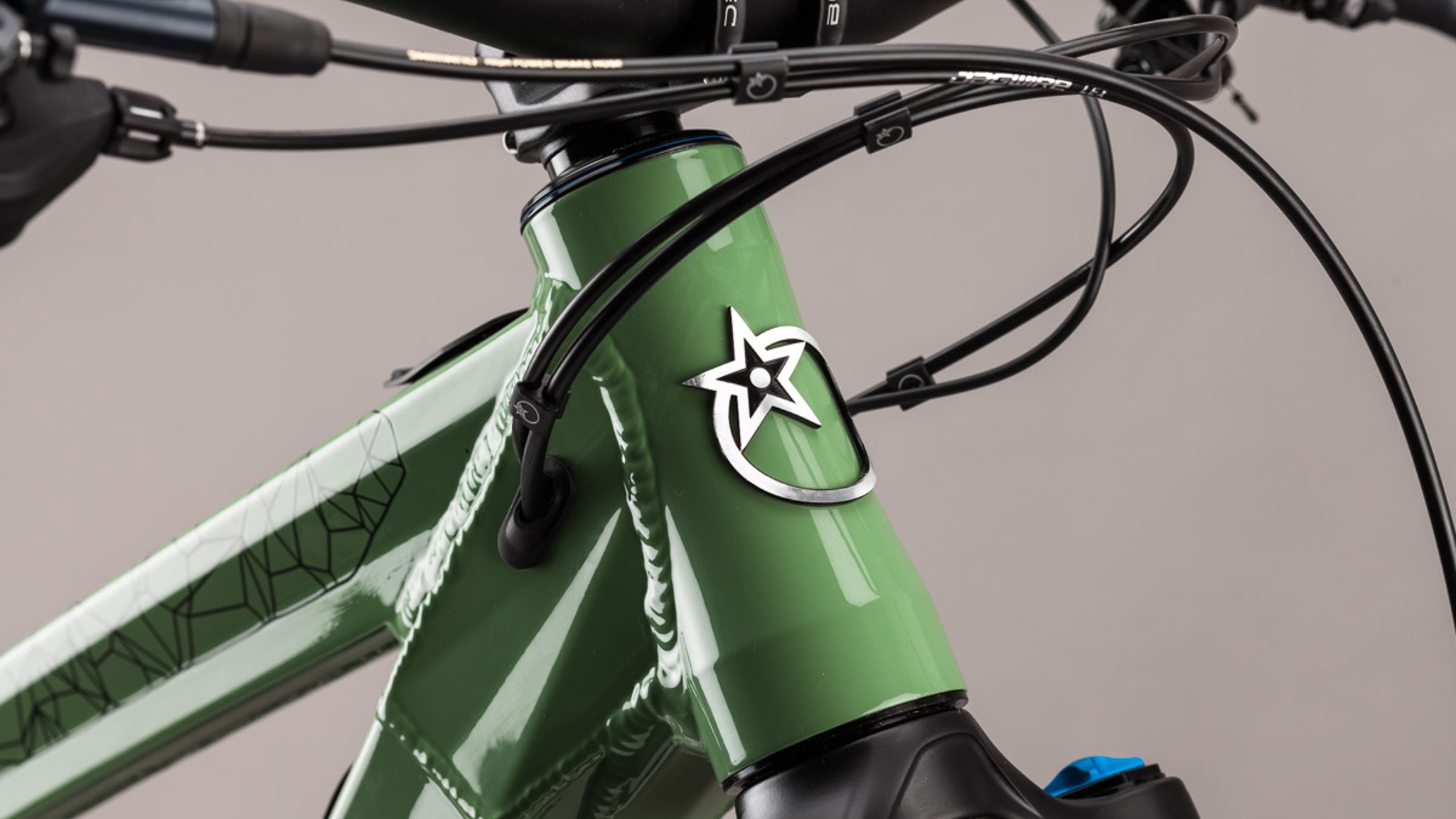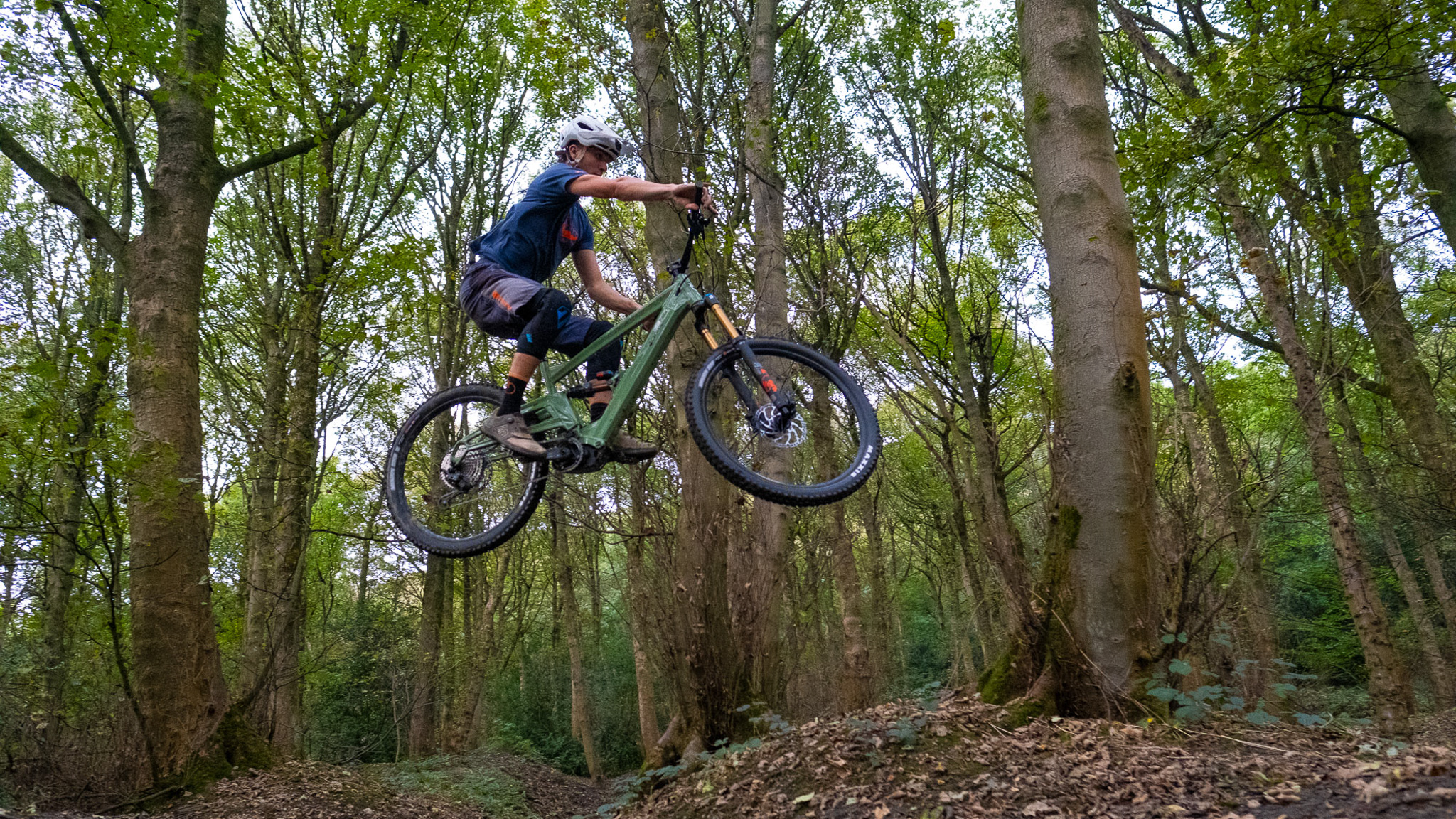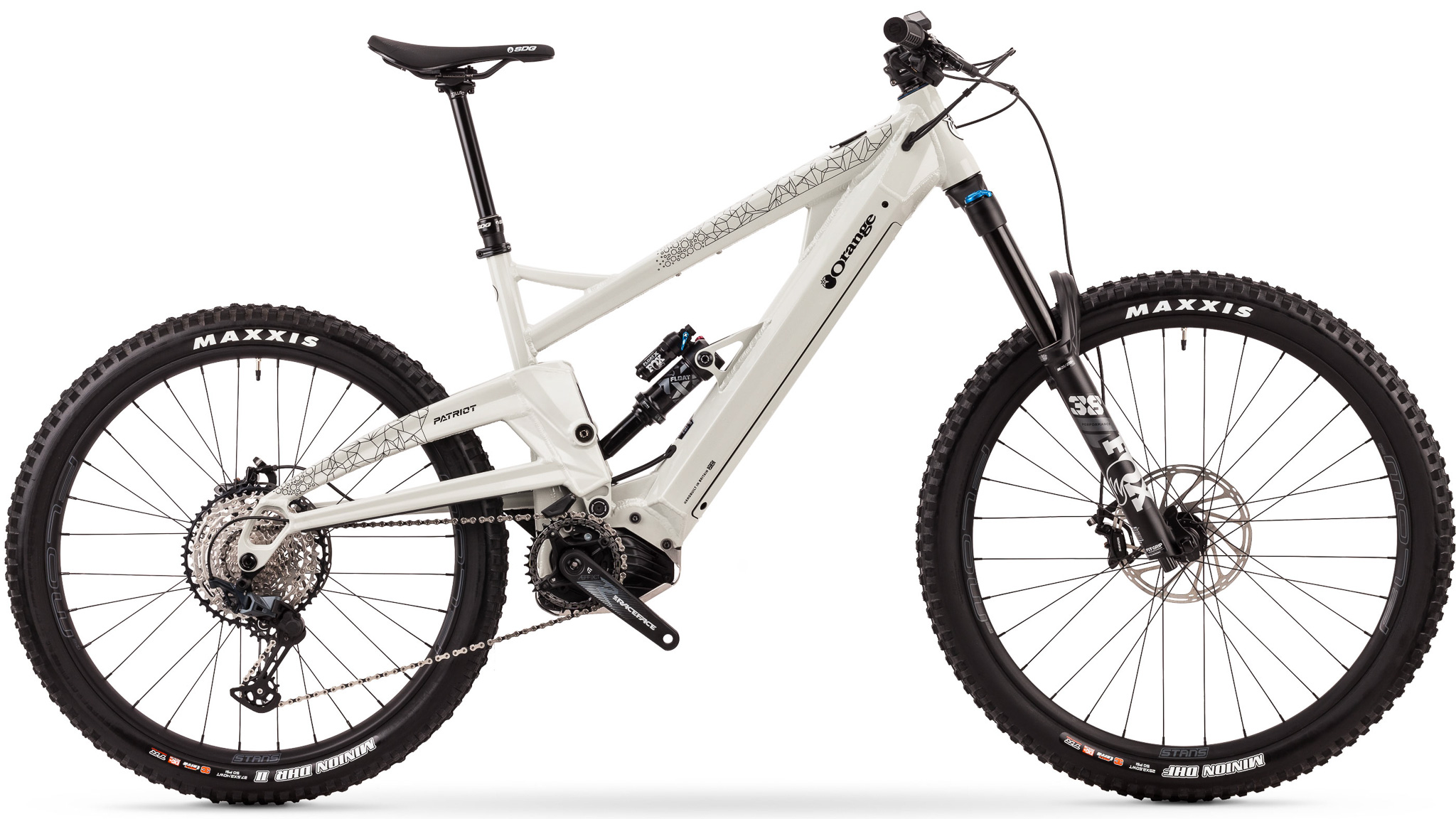
Orange Bikes are one of the recognizable and iconic brands of UK and global mountain biking, with a fiercely independent and innovative stance that’s kept them at the cutting edge for 35 years. So why is such an iconic brand now in administration? Is it just the squeeze on the industry as a whole that’s left them out of juice? Will their distinctive folded metal frames ride again, or have they folded for good? Is patriotism no longer enough to keep the Patriot being produced in Halifax, or has someone taken the pith? Long term Orange fan Guy Kesteven looks into the different segments of the story to see what the future might hold for them and others.
From Clockwork to Charger
Born from windsurf brand Tushingham on days too calm to sail, O-Range mountain bikes and their distinctive fruit based marketing were an instant early ‘90s success. Orange’s Clockwork, Prestige and P7 steel bikes, plus the titanium Vitamin T, were the must-have hardtails for racers and ravers alike. After the ‘everyone was wonky back then’ period of X1 to X3 full-suspension bikes and the super tall 628 DH bike, they hit their double-sprung stride with the Patriot. This bike combined their hand folded and welded in Halifax construction with geometry allegedly so radical they lied about it in the marketing as they thought no-one would buy it if they knew the truth.
Evolutions of this bike and the 222/223 DH bikes got them global race success under Team Animal and the Global Racing team where Greg Minaar kicked off his GOAT career. Steve Peat was another iconic racer who took the Orange 224 bike built just a few miles from his Yorkshire home to his long awaited World Cup win at Fort William in 2005 (still a spine tingling watch over 18 years later).
MsIsle gave the jumpers what they wanted, MR XC was a hit with the sweaters, and the Five joined the Patriot as the Tonka toy choice of trail riders everywhere. Isle of Man TT racer, truck mechanic and TV personality, Guy Martin, became a high profile Orange advocate and seemingly typified everything people thought about the tough, no nonsense, northern UK brand.
If you look past the ‘filing cabinet’ comments on forums, their seemingly simple single pivot layout has carried on evolving for the past twenty years too. Always ahead on geometry and with a huge amount of hidden detail hand-built into the Halifax welded and locally CNC’d frames. Being able to design and build a frame within days (you can literally see the metal cutting machines from the design computers at their fabrication facility) meant Orange were early with Shimano e-MTB motors and mullet rear wheels. Looking at the range now, they’ve got every base covered from the recently launched Phase Evo lightweight e-MTB, the MBR 10/10 rated Stage linkage shock bikes to the ‘Peeler’ kids balance bike. Considering the suspension bikes are all hand-built and hand-painted in Halifax – not overseas – their prices have traditionally been surprisingly reasonable too.

Orange squashed
Shortly after the news that Orange Factory Racing – once home to internet favorite Joe Barnes – was not surviving into 2024, worse news broke last weekend when Forbes reported that the firm was going into administration. To make the sting even worse, Singletrack magazine stated (on a now deleted thread on their forum) that this was the first time most of the workforce knew about it. A quick flick through Companies House and credit check data shows Orange and linked company 021C have loans and debts of £4.4 million. Including outstanding monies to original Orange co owner Steve Wade and his wife, who along with fellow original owner, Lester Noble, signed the company over to current owner Ashley Ball.
Ball was certainly no stranger to the brand as he owns the local sheet metal specialists firm, Bairstows, who build Orange's distinctive folded frames. He has always been incredibly passionate and insightful about the brand, bike tech and innovation every time I’ve spoken to him. Orange's approach of on-shoring production to reduce supply chain issues and guarantee better quality control as well as more agile development timelines is something a lot of companies are striving for now. So what went wrong?
The obvious answer is that Orange are just another victim of the Covid tsunami that sucked orders forward, swamped supply chains and has now left a carnage of an over-stocked and over-saturated bike market in its wake. Orange’s stock value soared from £1.4 to £1.7m, and then to £3.8m on the basis of recent loans, but now cash has dried up and most potential investors have called time on the bike industry just when Orange – like many others – need bailing out most.
At a time when shrewd firms are decimating their product ranges to focus on core models, the 33 model Orange range is huge and potentially confusing too. Even though that’s mitigated by the fact that they can essentially build on demand in terms of frames, that doesn’t matter if potential buyers are baffled and turned off by the website rather than turned on. They still have to cover the options with component orders to deliver complete bikes too and for a small company trying to fight for order allocation within months rather than years has been a nightmare since Covid. It’s seen many companies taking big loans or investment to try and buy their way into the game too, creating an upward spiral of potential over reaching sustainable repayment levels.
Orange have always loyally stuck by their dealers, rather than going customer direct to reduce retail prices, but those dealers are coming under huge pressure. Not just from the current lack of customers but also bigger brands who can use the temptation of longer credit terms or the threat of pulling supply altogether to dominate sales floors and squeeze small brands like Orange into the corner.

What happens next?
All of this is informed conjecture though and at the time of going to press the official statement from Orange is thus:
“In response to current speculation regarding the position of Orange Bikes and the recently filed Notice of Intention to appoint Administrators: Orange Bikes and its associated companies are currently working with Specialist Business Rescue Advisory firm J9 Advisory, with a view to restructuring the businesses in order to provide a viable platform to service our customers in the best way possible, safeguarding jobs and ensuring the continuation and strength of the Orange Bikes business moving forwards. Further details will be released as soon as possible.”
We really hope that a brand that has given so much Zest to MTB and seemingly still has so much to still offer can fight their way through the current Phase and return to working like Clockwork again. Not join similarly innovative mavericks like Guerrilla Gravity as casualties of the current Crushing stage the industry is going through. If the response to the news on social media is anything to go by, they certainly have a lot of fans out there, so hopefully that stands for something going forward. We’ll obviously keep you up to date with any new juice as the story leaks out too, but for now we wish everyone at Orange the best of luck and I offer a personal thanks for creating some of the most engaging and entertaining bikes I’ve ever tested. Here's hoping I get to ride some more.







